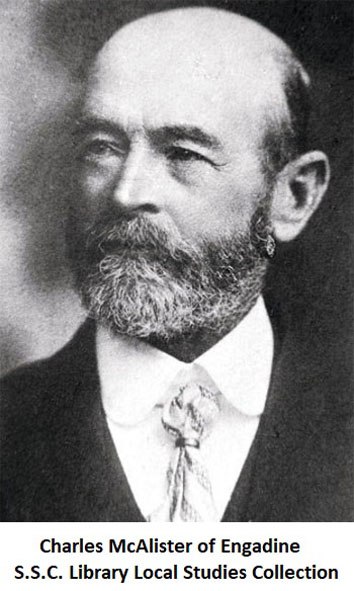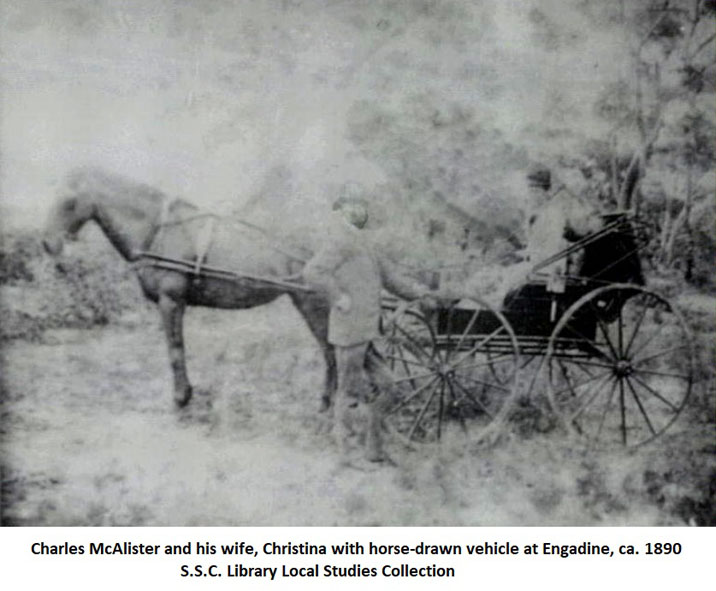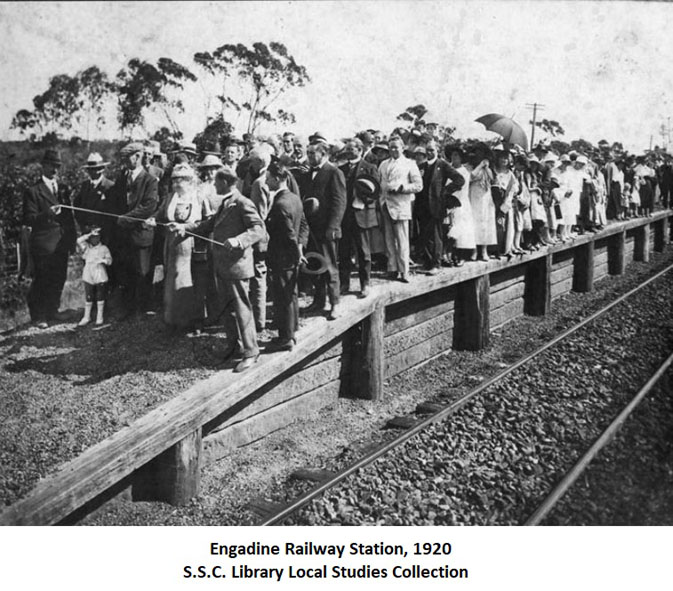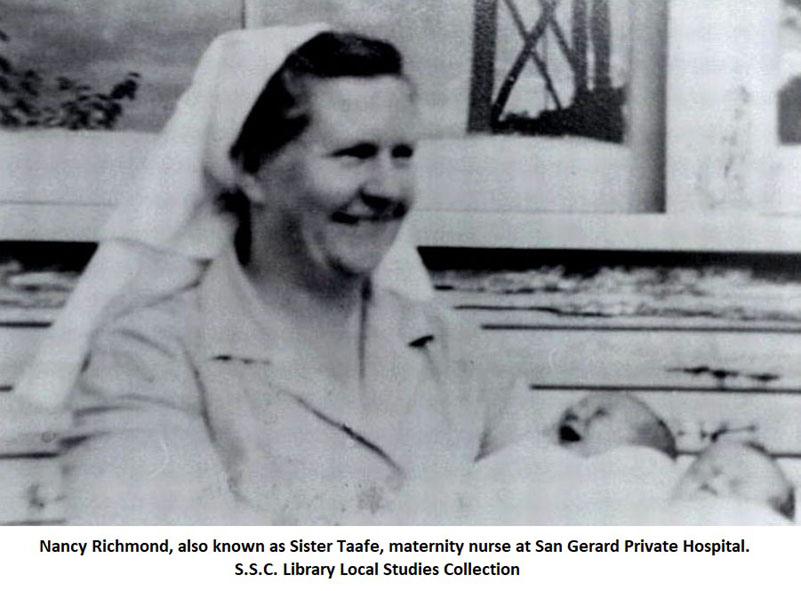

| Welcome | Database | Indexes | Copyright/Disclaimer | Login |
Engadine
The earliest inhabitants and traditional custodians of
the land were the Dharawal speaking people.
It would not have been year round but rather seasonal occupation.
The area which became the suburb of Engadine is part of
the Parish of Heathcote.
The
Illawarra railway line opened in 1886 from the city centre at Central Station to
the south coast passed by what would become the eastern border of the township
but was at the time designated crown land.
A railway platform was located at the present day adjoining suburb of
Heathcote.
Crown land was made available for sale as early as 1887.
Charles McAlister purchased several parcels of land.
Most of this land was located on and around what was then known as the
Old Illawarra Road (later Woronora Road) which came from the west and crossed
Woronora River at a natural sandstone ford locally known as “The Needles” but
named the Pass of Sabugal by Major Thomas Mitchell who had been in charge of the
survey of the road to the Illawarra District in 1843-1845.
Charles McAlister came from Ireland and had been in the
colony since about 1866.
He had been
a shop owner in the city of Sydney and for some time was a pearl merchant in the
Torres Strait.
It was after he
returned from there that he married Christina Ballantine at St Patricks Church
Sydney on 14 February 1885.


Charles and Christina McAlister moved to the land he
purchased on Old Illawarra Road having built a simple dwelling in about 1890
which they named “Sunbeam Cottage”.
Additions were made over the following years including outbuildings and a
ballroom at the side of the original cottage. The property was renamed
“Holmlea”.
In 1906 Charles was
nominated to serve on Sutherland Shire’s provisional Council and elected to the
first council of 1907.
He served
until 1913.
He stood for the
1914-1916 council election but was unsuccessful.
Land in the area was purchased by speculators but very
few took up residence with those limited to just a few who would become
pioneering families.
With regard to
future development of the area land was set aside for a school in what became
Preston Park on Railway Parade.
In 1915 the world war one Waratahs recruiting march
passed through Engadine on its way from the south coast to the city.
When wounded soldiers started to return from the war land was opened up
in the area for soldier settlement from 1916.
After McAlister’s death in 1916 his wife Christina
continued to live in Engadine but later moved to Cronulla in the 1920s where she
remained until her death. During this time the growing community lobbied for
improvements to the area including its own railway platform which opened in
November 1920.

The population increased in the 1930s when the
depression created huge unemployment and families who could not afford to live
in the city moved to the outskirts of Sydney.
Land was opened up in the northern end of Engadine with many families
making this their permanent home.
In
1931 a school of arts was opened for local celebrations, social functions,
dances and meetings. Due to the influx of young families it was closely followed
with the opening of a school in 1932.
In 1933 the village of Engadine was proclaimed with a population of just
over 400 people.
By 1940 there were 23 poultry farms.
The land on which Engadine is built is not suitable for agriculture and
raising poultry for market was a relatively cheap industry to sustain.
In 1942 Boys’ Town a home for boys relocated to Engadine
from the Royal National Park after eviction from their residence in Sutherland.
This institution had been set up by Father Thomas Dunlea.
Land was taken up around Waratah Road and a complex of buildings was
established to cater for their needs.
There was no public hospital in the Sutherland Shire
before 1958.
“San Gerard” Maternity
Hospital opened on the Old Princes Highway in 1950 by Sister Nancy Taafe and
continued until the 1980s.

The Engadine Plaza Picture Theatre was opened by Percy
Jones in 1956.
However with the
advent of television the theatre was forced to close in 1961.
The mid sixties also saw local lobbying for a High
School which was opened in 1969.
The Princes Highway was diverted from the town centre in
1969 and this part of the road was renamed the Old Princes Highway.
With a gradual shift of the centre of the shopping area to the north 1990
saw the opening of Engadine Court shopping complex.
The community centre built nearby in 1974 was
redeveloped in 2010 and incorporated into a new town square which included the
war memorial.
The shopping complex
became known as the Engadine Town Square shopping centre.
A multi storey nursing home was erected in 2016.
Nearby the community services established in 1998 and known as the
Caldarra Avenue Community Service area continues with child care services and a
public branch library.
In the 2016 census the population of Engadine was
17,374.
Sources:
Hick, Robert
Conservation Plan for “Holmlea” Cottage: Prepared for assessment of Conservation
Management Plan 1993
Lions Club of Engadine
Engadine 1825-2001
Lock, Colin
History of Engadine Public School
1932-1982
Sargeant,
Bernard
Sutherland
Shire Council
: An account of its
composition, elections and changes in Councillor numbers and riding boundaries
from 1906-1983